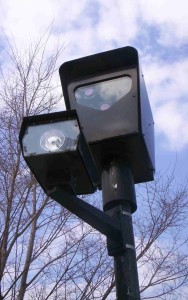
CO-04 (Special Election)
See Full Big Line
(R) Greg Lopez
(R) Trisha Calvarese
90%
10%

President (To Win Colorado)
See Full Big Line
(D) Joe Biden*
(R) Donald Trump
80%
20%↓

CO-01 (Denver)
See Full Big Line
(D) Diana DeGette*
90%

CO-02 (Boulder-ish)
See Full Big Line
(D) Joe Neguse*
90%

CO-03 (West & Southern CO)
See Full Big Line
(D) Adam Frisch
(R) Jeff Hurd
(R) Ron Hanks
40%
30%
20%

CO-04 (Northeast-ish Colorado)
See Full Big Line
(R) Lauren Boebert
(R) Deborah Flora
(R) J. Sonnenberg
30%↑
15%↑
10%↓

CO-05 (Colorado Springs)
See Full Big Line
(R) Dave Williams
(R) Jeff Crank
50%↓
50%↑

CO-06 (Aurora)
See Full Big Line
(D) Jason Crow*
90%

CO-07 (Jefferson County)
See Full Big Line
(D) Brittany Pettersen
85%↑

CO-08 (Northern Colo.)
See Full Big Line
(D) Yadira Caraveo
(R) Gabe Evans
(R) Janak Joshi
60%↑
35%↓
30%↑

State Senate Majority
See Full Big Line
DEMOCRATS
REPUBLICANS
80%
20%

State House Majority
See Full Big Line
DEMOCRATS
REPUBLICANS
95%
5%
 April 22, 2014 09:58 AM UTC
April 22, 2014 09:58 AM UTC 10 Comments
10 Comments
I am in favor of cameras if 100% of the gross revenue is given to the Red Cross.
Let's see how many city politicians would support cameras in that case.
I'm not sure which is worse — seeing 3 cars stream through turning left after the light turned red, or getting stuck behind a creepy-crawler driver as the light goes from green to yellow to red before you can exit the intersection.
We need longer left turn signals and a little longer yellow transitions.
I also give the guy behind me plenty of warning that I'm stopping and not going to run the light if I know from experience it's gonna turn on me.
Defend Zombie Cams, statists. The public will love you!
And how, pray tell, do you define statist?
Simple. If you support any sort of government, you're a statist. If you want anarchy, you're not.
Still waiting for Modste'rs definition. Guess it'll be a long wait.
FTFY, Hick.
I'm with the governor's "number of people". A fine of a few bucks doesn't stop the real offenders. Many people don't know or don't care if the cameras are there. Some get distracted by the inordinate number of false flashes (or flashes aimed at other cars).
And as we discussed the other day, the safety stats aren't nearly as rosy as the CACP presents – especially when compared to changes in actual light timing.
Further, in some jurisdictions the images are kept and are searchable – an expansion of a surveillance / police state or the perception of such an expansion absent the implementation of affirmative privacy protection measures or even the desire for such measures.
If the "redlight" bill gets signed, will the "ticket-mobiles" go away, too? I'm a block down from a very busy intersection. The ticket-mobiles are constantly parked two doors down from my house and the flashes from the camera drive me bonkers, especially at night.
If the revenue stream did not include a for-profit company I would feel slightly better about the things. They may reduce T-bone collisions, but they increase rear-end collisions.